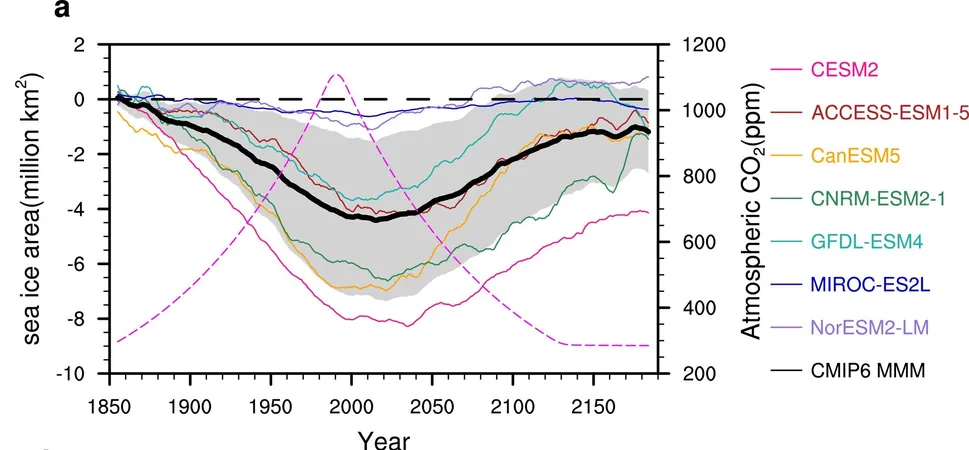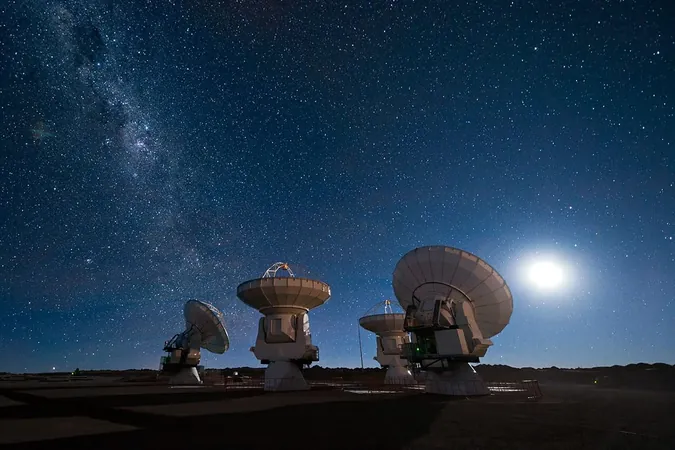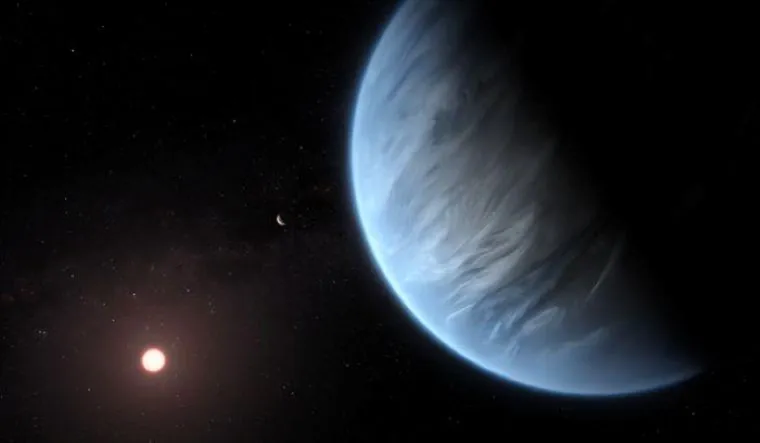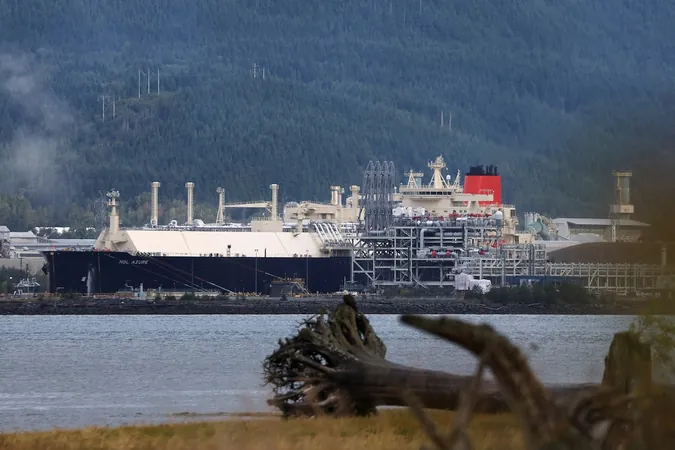
Can We Save Antarctic Sea Ice? New Research Reveals the Key to Reversing Climate Loss!
2025-09-21
Author: William
Antarctica's Ice: A Damning Decline since 2014!
The Antarctic region has been experiencing a significant decrease in sea ice extent, particularly alarming since 2014. But what can be done to reverse this trend? A groundbreaking study published in *Geophysical Research Letters* suggests that the answer lies not just in our carbon dioxide emissions, but also in the ocean's layering!
The Science Behind Ocean Stratification!
Researchers led by Sirui Li from the Ocean University of China have uncovered crucial insights into how the ocean's different layers impact ice recovery. The stability and thickness of these layers—where warmer, saltier water sits beneath colder surface water—determine whether we can turn the tide on sea ice loss.
The Dangers of Strong Stratification!
In scenarios with strong ocean stratification, heat remains trapped in the upper ocean, inhibiting ice formation and causing dangerous melting from below. This creates a vicious cycle: melting ice leads to even more stratification, further loss, and a continuous escalation in melting processes.
Modeling the Future: A Troubling Outlook!
Through sophisticated climate modeling, researchers simulated various future scenarios. Alarmingly, even if carbon dioxide levels return to pre-Industrial values by the year 2129, Antarctic sea ice is projected to remain significantly below its former extent. This highlights a concerning lag; the ice's response may take decades to catch up with changes in carbon emissions!
Hope on the Horizon: Weaker Stratification Can Save the Day!
Good news surfaces when initial ocean stratification is weaker. Under these conditions, heat is more effectively mixed downward, promoting cooling at the surface and encouraging ice formation. Thus, the timing is critical for recovery efforts.
The Broader Implications of Ice Loss!
It's not just the ice at stake—Antarctic sea ice plays a vital role in our global climate, influencing ocean currents, ecosystems, and even sea levels. Less ice means more open water and solar energy absorption, further warming the ocean and melting ice shelves, which contributes to global sea level rise.
Urgent Calls for Action!
To improve our understanding of Antarctic conditions, the scientists urge enhanced observations concerning stratification. This includes high-resolution monitoring of subsurface temperatures and salinity, as well as meltwater dynamics and ocean-atmosphere interactions. They emphasize that policymakers must prioritize these factors to protect Antarctic sea ice.
The Future Lies in Our Hands!
In conclusion, while the reversibility of ice loss is possible, it hinges on our collective commitment to reducing carbon emissions sooner rather than later. The road to recovery for Antarctic sea ice is complex, but not impossible if we act decisively!









 Brasil (PT)
Brasil (PT)
 Canada (EN)
Canada (EN)
 Chile (ES)
Chile (ES)
 Česko (CS)
Česko (CS)
 대한민국 (KO)
대한민국 (KO)
 España (ES)
España (ES)
 France (FR)
France (FR)
 Hong Kong (EN)
Hong Kong (EN)
 Italia (IT)
Italia (IT)
 日本 (JA)
日本 (JA)
 Magyarország (HU)
Magyarország (HU)
 Norge (NO)
Norge (NO)
 Polska (PL)
Polska (PL)
 Schweiz (DE)
Schweiz (DE)
 Singapore (EN)
Singapore (EN)
 Sverige (SV)
Sverige (SV)
 Suomi (FI)
Suomi (FI)
 Türkiye (TR)
Türkiye (TR)
 الإمارات العربية المتحدة (AR)
الإمارات العربية المتحدة (AR)